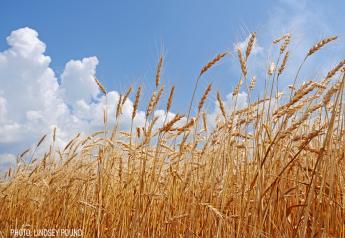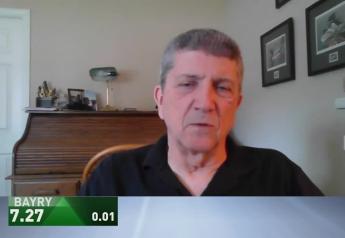Missouri Farmer Tells Kamala Harris Rural Broadband Struggles Could Throttle Biden’s Climate Goals

The digital divide in the U.S. was center stage this week, as the White House hosted a listening session focused on broadband connectivity. Vice president Kamala Harris hosted the event to hear Americans’ experiences and frustrations in accessing broadband, as the Biden administration continues to craft and implement the American Jobs Plan.
While various industries were represented, agriculture also had a voice. Missouri farmer Meagan Kaiser was one of six individuals invited to join Harris and discuss connectivity issues in the U.S. As a farmer and small business owner in rural Missouri, Kaiser made it clear: Rural connectivity is a major pain point for not just farmers and rural businesses, but also rural residents who struggle to connect to the internet.
“We spent years calling every fiber provider in our area, asking what do we have to do? What can we do to connect our business? And the answer was that it would cost upwards of $40,000 just to connect, not including our monthly fees,” said Kaiser. “Right there is a barrier of access that if we were a new business, we couldn't possibly justify locating in a rural area.”
Kaiser explained she was able to secure a connection in 2019, and it made a difference in upload speeds. Kaiser said the issue then became a rural development obstacle, as connectivity issues could scare away businesses from making their rural community home.
“But on top of that, the upload speed is so important for us as farmers,” added Kaiser. “We still don't have this connectivity at our home or farm, we often rely on cellular hotspots. But in rural areas, even cellular data is very difficult to come by.”
Kaiser says when it comes to making data-driven decisions, including when adopting and quantifying climate smart practices, the lack of access to rural broadband is a major hurdle that is growing in importance. Kaiser told Harris connectivity issues could ultimately impact the Biden Administration’s efforts in reducing the overall climate footprint.
“We've come so far with precision agriculture. We can test our nutrient content, learn our air and water holding capacity, we know how much fertilizer we applied and exactly how much crop we gained from those applications down to the acre,” says Kaiser. “But we can't utilize the any of that data and overlay it and make better data-driven decisions if we can't upload the information to a central source. And, you know, I strongly believe the future for agriculture to play a large role in green alternatives for everything from plastics to fuel and lessen our own carbon footprint while producing these goods is very real. But the only way for us to get there is to have the ability to make better data-driven decisions. And that completely relies on our ability to connect to the internet.”
Harris responded to Kaiser’s experiences and frustrations, saying the solution should be simple.
“It's such a big point that you're making, and the solution is so obviously simple,” said Harris. “If we get our act together, the scientists, the farmers. You guys are doing the hard work of coming up with all of all of these innovative practices, figuring out watering how much and when and predicting and projecting. Doing it in a way that is smart and efficient and effective. And you can't even upload the information to do anything with it.”
Harris went on to ask Kaiser about how the connectivity issues are impacting rural farmers’ ability to stay productive and in business.
“Well, my dad always said, ‘If you can't measure it, you can't manage it,’’’ responded Kaiser. “If you don't know what you're working with. We have tight margins. In many cases, we are a commodity business in agriculture. And if we can't look at it down to the tee of exactly what we're putting in, what we're getting out, we can't survive. We can't be financially sustainable. But now we're looking at it and even greater role in that, the more that we are able to do with less. We're feeding people or clothing people, we're fueling people. And we're replacing products that are not as sustainable with the soybean oil that comes through my farm. I can make biodiesel, I can make plastics. These are things that are better for the earth.”
Click here to hear the entire discussion.







